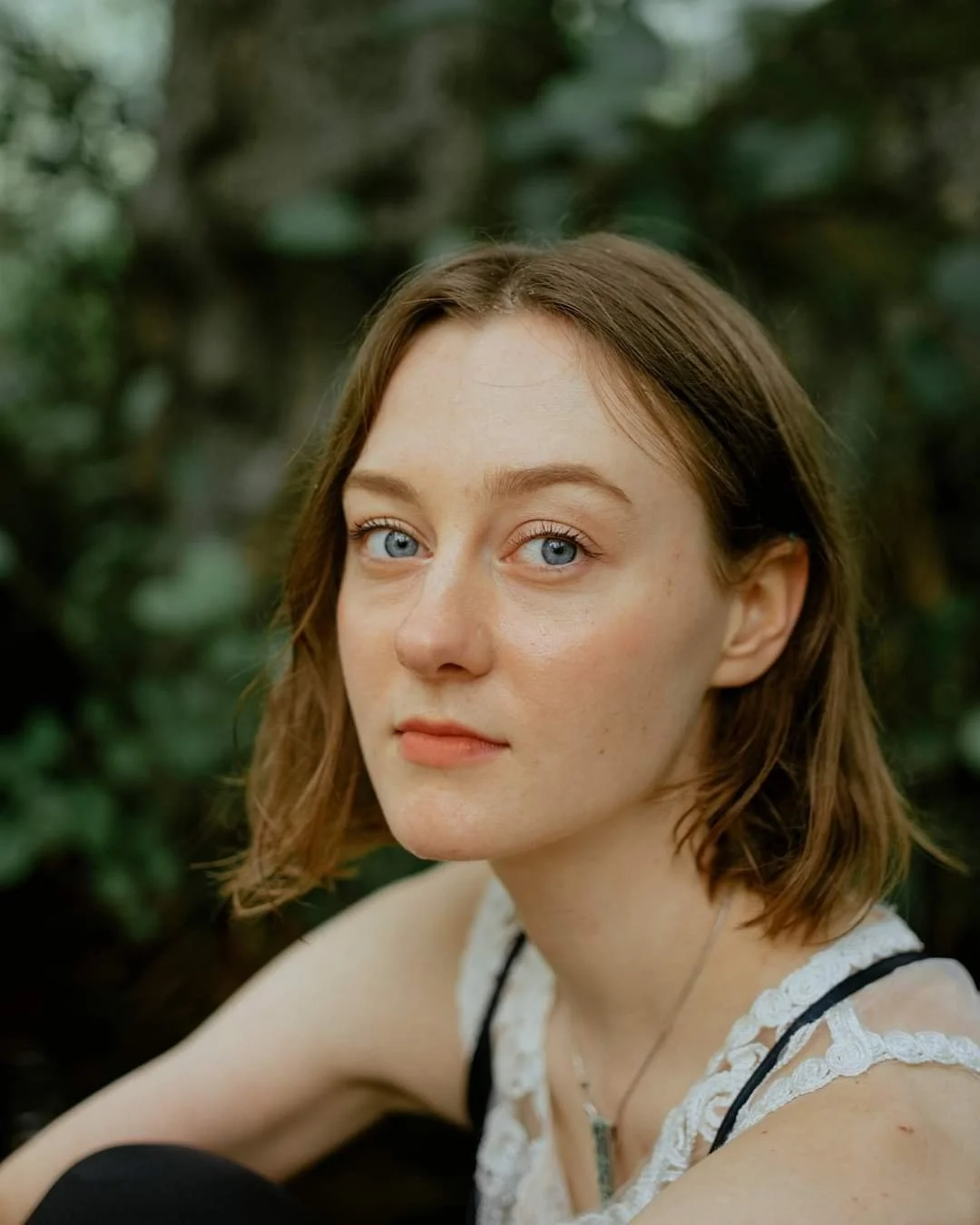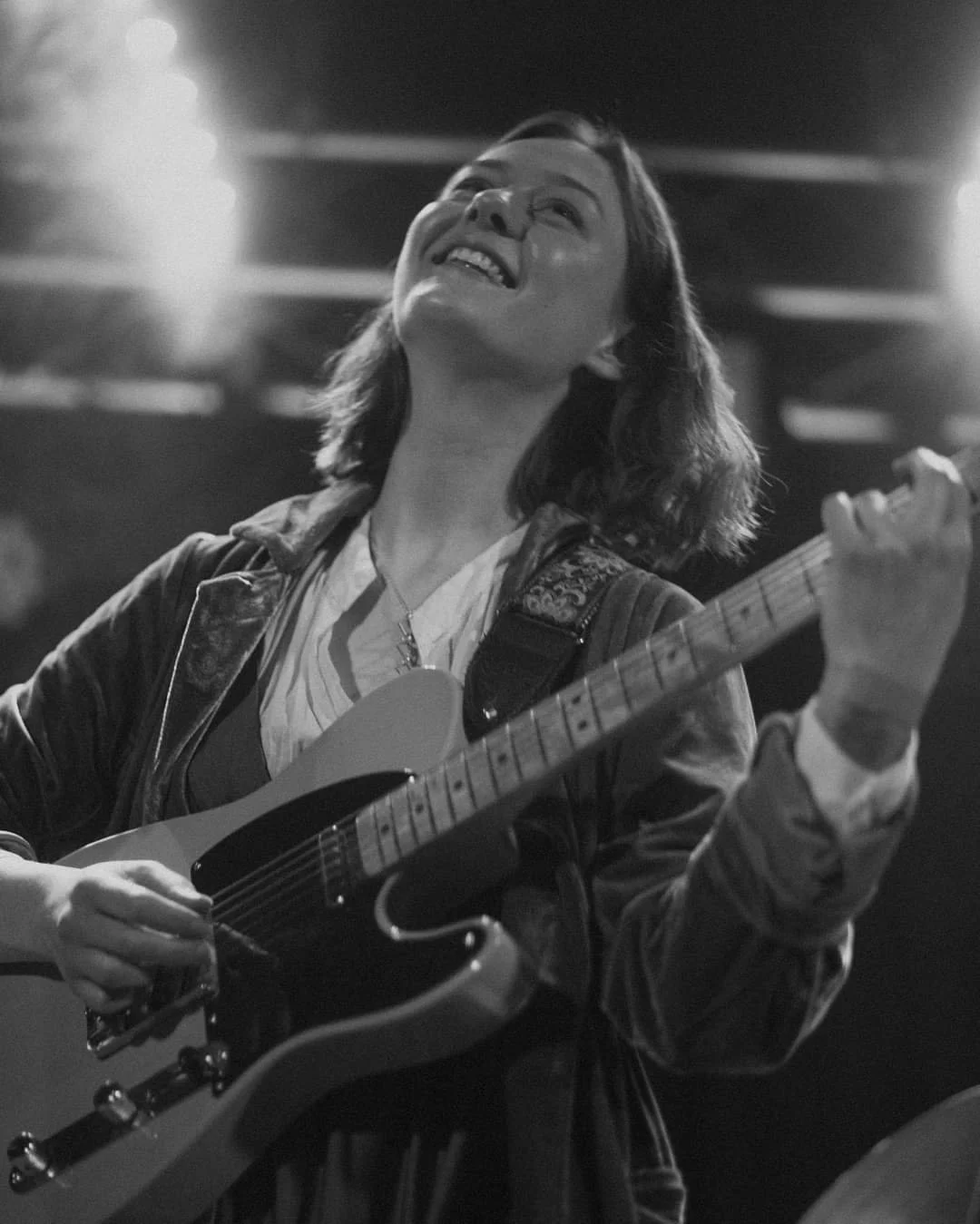Kindelan
Following the release of her EP You Can Reach Me If You Try, Leeds-based musician Kindelan talks to us about navigating the indie music scene as a young teen, how her music has grown with her and the artist friends she admires.
When did you begin working as a musician?
It’s always been what I’ve done! I don’t remember a specific point that I started. I begun playing classical guitar when I was in primary school - and joined the primary school rock band - and then I did a Saturday music course, called The Jam Factory, and I just kept going every weekend from the age of about 11. The people who ran that eventually became my friends, then played with me in my band. I think I did my first gig at the age of 13 - my first proper solo gig with songs that I’d written. When I was going through secondary school people would be like “Do you want to hang out this weekend?” and I’d say “Well I’m doing this gig…”, so it’s always been with me, a part of me that’s always been there. It’s always been really ingrained in my life. And there’s no age thing with music - even when I was starting out I’d be friends with people my age, people who were like 22, 28…
Having been a musician for so long, how has your music changed since you started out?
Significantly! I think when I first started writing music, when I was very young, I was looking at the people directly around me for inspiration, therefore I just sounded very similar to them, and then through growing up and also figuring out how to use the guitar, production and stuff as a vessel to get what’s in my head directly out, my music’s just become way more “me”. Since going to uni, jamming with other people, listening to my music in my head as fully arranged compositions as opposed to just me and my guitar, that’s been a big thing, and also learning how to produce, that’s been a huge thing as it means I can try to bring something to life as a fully formed demo and then bring that to other people.
Do you produce your music on your own now?
No, but that is definitely a goal of mine. This EP has been co-produced with a really good friend of mine called Ed Allen, and he’s amazing - the songs wouldn’t sound like they do without him, he’s breathed so much life into them.
How did you find the experience of starting out so young?
I really enjoyed being a young musician I think because my parents were such a big part of it - they used to drive me to and from gigs, and to this day I have to get them not to come to every gig! I think had I started out later in my teens I would’ve done it by myself, but I realise I’m really lucky that my parents want to be there. That made it feel really safe though as well, because I don’t think I’d have wanted to do everything I did so young without them there. There’s actually only one bad experience I can recall, where the promoter of a gig refused to pay me, as they said I was too young to be paid, yet a friend of mine who was only about three years older did get paid, for doing the exact same thing! Obviously though I wasn’t trying to pay my rent or anything at that point in time, so it wasn’t such a problem.
Have you always been based in Leeds?
I’m from York originally, which was where I started out. I came to Leeds when I studied songwriting at Leeds Conservatoire. In my experience - I did leave York pre-pandemic - the music scene in York is mostly based around indie rock and acoustic, whereas in Leeds the scene here is much more focused on jazz music, which really resonated with me and is one of the reasons why I love being here. I wouldn’t identify as a jazz musician, but I am heavily influenced by it, and I love watching it. But I really loved growing up in York and that scene, and I think that definitely influenced my folk-style lyricism and storytelling.
How do you feel having studied songwriting has influenced you?
It’s made me feel actually like a songwriter, purely because before I started uni I’d never really collaborated with anyone else - I’d played with other people, but only written I think one song with another people - while on my degree they throw you into loads of different groups, you have to work with others. And before uni, whenever I’d written a song I’d just sort of accept how it came out, whereas now I’ll often go back and edit things. Knowing that you can go back and improve things has been helpful.
Your EP, You Can Reach Me If You Try, came out on May 10th - how long were you working on it, and how many tracks are on it?
There are seven tracks - five songs and two shorter pieces, one called Listen, which is the introduction to the EP, and another called She, a really intimate piece which I actually did produce myself, about my experiences being a woman in romantic experiences across my life so far. In terms of how long I was working on the EP - a long time! Too long! But the oldest one, Feast, was written pre-pandemic, and the last one that was finished was probably Hazel Frustration. Me and Ed got in the studio, I think maybe in 2021, so this EP has been a long time coming. I’d say the pandemic actually benefited things, as I was sat by myself in a room a lot of the time and used my time to get into production, so there’s no way any of these songs would sound as good as they do without that. Had I just gone into the studio with seven acoustic tracks it just wouldn’t sound the same.
What are you listening to yourself at the moment?
The artists I’m really into at the minute are all just my friends! I feel incredibly lucky to be able to say that. And because everyone was working on stuff during the pandemic, now they’re releasing it. So I’ve been listening to Sunday Lendis, Rosie Miles, Elanor Moss, she’s great.
Words: Scott Bates

